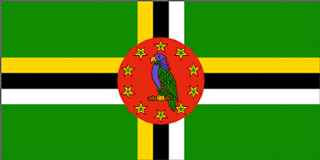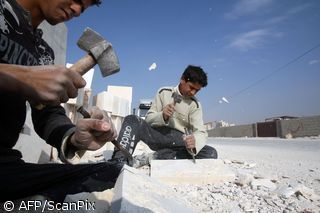The pensions question needs to be resolved between Poland and Eurostat and at some point there will be some form of agreement
Published:
19 October 2004 y., Tuesday
The pensions question needs to be resolved between Poland and Eurostat and at some point there will be some form of agreement.
MichaŠŠ DybuŠŠa, chief economist with BNP Paribas:
"The pensions question needs to be resolved between Poland and Eurostat and at some point there will be some form of agreement. The final exchange rate for the Euro will need to be found and calculations would indicate that a rate could be 4.20 zŠŠoty or even slightly less at 4.10.
"If you look at Poland and the rest of the Central European countries, they are much closer to convergence in terms of business structures than, say, Portugal, Greece and Ireland were, and that will allow them to withstand the asymmetrical shock of convergence.
"Secondly, the Euro zone offers the benefit of taking advantage of lower interest rates. In the Euro zone they have a base rate of 2 percent and in Poland interest rates are 6.5 percent. This is a tremendous difference and will be greatly appreciated by businesses. So from these points of view we can say the quicker the better in terms of joining the Euro zone.
"In terms of entry, Slovenia is particularly well placed, but if you look at the four Central and Eastern European countries-Hungary, Czech Republic, Slovakia and Poland-we are well placed because not all the other countries have such good economic track records.
"Opposition might come from old EU countries like France and Germany, which are suffering at the moment and might say taxes are too low and that Poland will offer unfair competition. This is the political dimension, and if France and Germany do not feel very secure it could prove a difficulty. One can imagine that Poland's fiscal policy and figures will not only be scrutinized in Brussels but will be examined in great detail in the likes of Paris and London. I can't talk for the political sector but the business sector is prepared to weather this and that indicates the strength of Poland in these areas.
"The only area where I can see a detrimental effect is the death of the Polish markets. That will mean there is no more work for people like me and we will have to find other work. Putting that aside, there seems to be a certain amount of optimism when you consider membership in the Euro zone."
Šaltinis:
wbj.pl
Copying, publishing, announcing any information from the News.lt portal without written permission of News.lt editorial office is prohibited.
The most popular articles
 An International Monetary Fund (IMF) mission led by Mr. Hunter Monroe of the IMF’s Western Hemisphere Department visited Dominica during January 18-28 for the annual Article IV discussions on economic developments and macroeconomic policies.
more »
An International Monetary Fund (IMF) mission led by Mr. Hunter Monroe of the IMF’s Western Hemisphere Department visited Dominica during January 18-28 for the annual Article IV discussions on economic developments and macroeconomic policies.
more »
 Experts in agriculture and government authorities coincided in requesting new management mechanisms and market regulation to protect the farming sector from the price crisis and enable generational changeover in rural areas at the European Congress of Young Farmers, organised by the ASAJA-Seville agricultural organisation.
more »
Experts in agriculture and government authorities coincided in requesting new management mechanisms and market regulation to protect the farming sector from the price crisis and enable generational changeover in rural areas at the European Congress of Young Farmers, organised by the ASAJA-Seville agricultural organisation.
more »
 Immediate action is required to solve Europe's skills deficiencies and give Europeans a better chance of labour market success in the future, says an independent expert report published by the European Commission today.
more »
Immediate action is required to solve Europe's skills deficiencies and give Europeans a better chance of labour market success in the future, says an independent expert report published by the European Commission today.
more »
 The European Investment Bank (EIB) is lending EUR 15.5 million to upgrade water supply and wastewater treatment in the City of Mykolayiv (southern Ukraine) and EUR 100 million to finance small and medium-sized investments in the areas of SMEs, energy efficiency and the environment in Ukraine.
more »
The European Investment Bank (EIB) is lending EUR 15.5 million to upgrade water supply and wastewater treatment in the City of Mykolayiv (southern Ukraine) and EUR 100 million to finance small and medium-sized investments in the areas of SMEs, energy efficiency and the environment in Ukraine.
more »
 The European Commission can confirm that on 20 January 2010 Commission officials carried out targeted inspections at the premises of producers of Flexible Alternating Current Transmission Systems (FACTS).
more »
The European Commission can confirm that on 20 January 2010 Commission officials carried out targeted inspections at the premises of producers of Flexible Alternating Current Transmission Systems (FACTS).
more »
 The European Commission has authorised today under the State aid rules a Lithuanian scheme worth LTL 10 million (approximately EUR 2.9 million) aimed at supporting farmers who encounter difficulties as a result of the current economic crisis.
more »
The European Commission has authorised today under the State aid rules a Lithuanian scheme worth LTL 10 million (approximately EUR 2.9 million) aimed at supporting farmers who encounter difficulties as a result of the current economic crisis.
more »
 The effects of the global food, fuel and economic crisis would be felt by Africa’s people for some time yet and it was important to persist with efforts to protect the most vulnerable while laying the foundations for future productivity and growth, World Bank Group President Robert B. Zoellick said Tuesday.
more »
The effects of the global food, fuel and economic crisis would be felt by Africa’s people for some time yet and it was important to persist with efforts to protect the most vulnerable while laying the foundations for future productivity and growth, World Bank Group President Robert B. Zoellick said Tuesday.
more »
 Mongolia’s herders have learnt a hard lesson this winter; a lesson that can perhaps be applied to managing Mongolia’s economy.
more »
Mongolia’s herders have learnt a hard lesson this winter; a lesson that can perhaps be applied to managing Mongolia’s economy.
more »
 DnB NORD Bankas, the leader of the country’s in investment products market, raises initial margin ratio for repurchase deals for most actively traded Lithuanian and Estionian shares.
more »
DnB NORD Bankas, the leader of the country’s in investment products market, raises initial margin ratio for repurchase deals for most actively traded Lithuanian and Estionian shares.
more »
 With over 23 million unemployed in the Europe Union and the jobless figure having risen in every member state since last year, how Europe is coping with the crisis and the effect on pension systems were discussed on Thursday 28 January.
more »
With over 23 million unemployed in the Europe Union and the jobless figure having risen in every member state since last year, how Europe is coping with the crisis and the effect on pension systems were discussed on Thursday 28 January.
more »